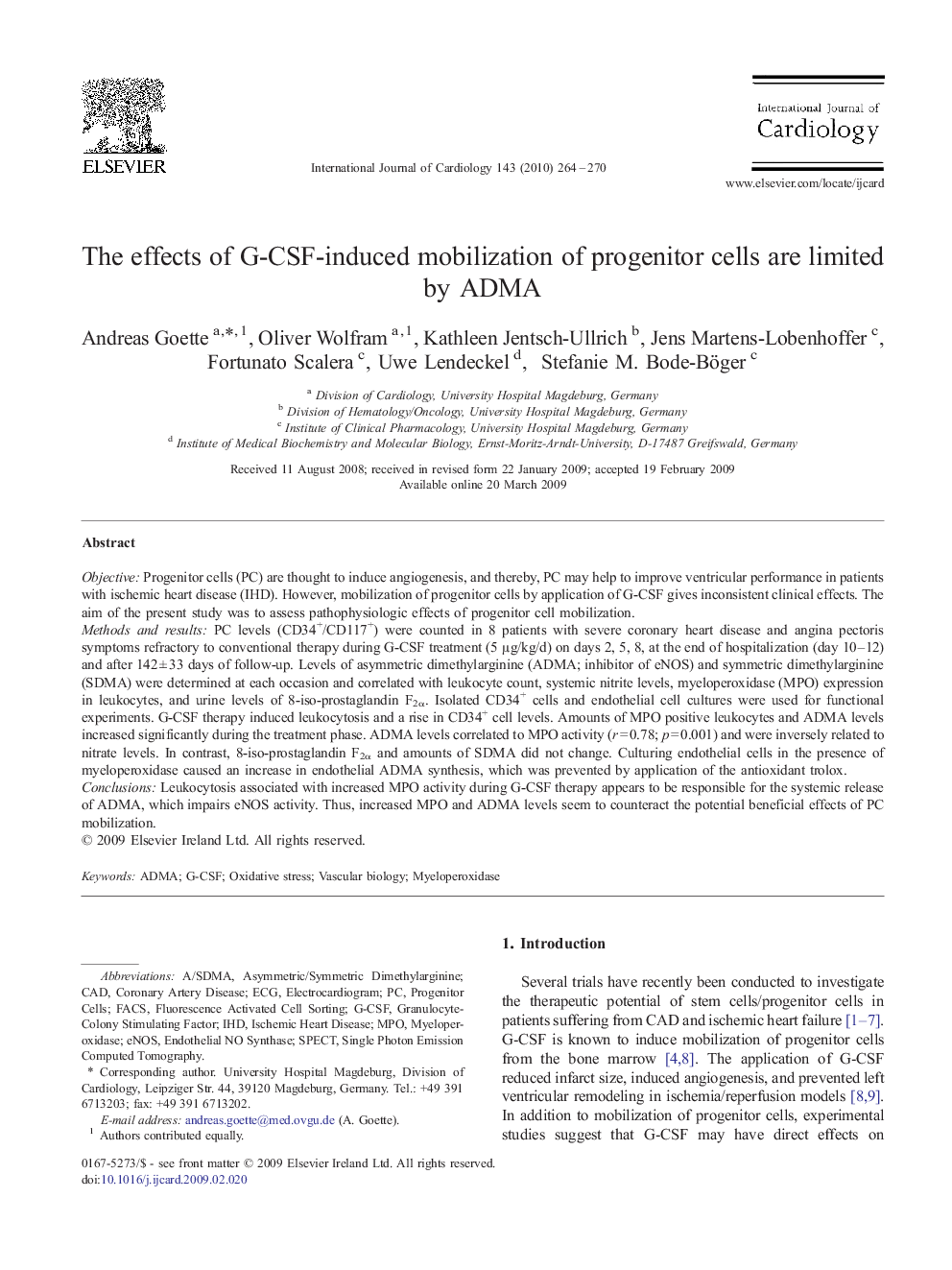| کد مقاله | کد نشریه | سال انتشار | مقاله انگلیسی | نسخه تمام متن |
|---|---|---|---|---|
| 2931232 | 1576294 | 2010 | 7 صفحه PDF | دانلود رایگان |

ObjectiveProgenitor cells (PC) are thought to induce angiogenesis, and thereby, PC may help to improve ventricular performance in patients with ischemic heart disease (IHD). However, mobilization of progenitor cells by application of G-CSF gives inconsistent clinical effects. The aim of the present study was to assess pathophysiologic effects of progenitor cell mobilization.Methods and resultsPC levels (CD34+/CD117+) were counted in 8 patients with severe coronary heart disease and angina pectoris symptoms refractory to conventional therapy during G-CSF treatment (5 μg/kg/d) on days 2, 5, 8, at the end of hospitalization (day 10–12) and after 142 ± 33 days of follow-up. Levels of asymmetric dimethylarginine (ADMA; inhibitor of eNOS) and symmetric dimethylarginine (SDMA) were determined at each occasion and correlated with leukocyte count, systemic nitrite levels, myeloperoxidase (MPO) expression in leukocytes, and urine levels of 8-iso-prostaglandin F2α. Isolated CD34+ cells and endothelial cell cultures were used for functional experiments. G-CSF therapy induced leukocytosis and a rise in CD34+ cell levels. Amounts of MPO positive leukocytes and ADMA levels increased significantly during the treatment phase. ADMA levels correlated to MPO activity (r = 0.78; p = 0.001) and were inversely related to nitrate levels. In contrast, 8-iso-prostaglandin F2α and amounts of SDMA did not change. Culturing endothelial cells in the presence of myeloperoxidase caused an increase in endothelial ADMA synthesis, which was prevented by application of the antioxidant trolox.ConclusionsLeukocytosis associated with increased MPO activity during G-CSF therapy appears to be responsible for the systemic release of ADMA, which impairs eNOS activity. Thus, increased MPO and ADMA levels seem to counteract the potential beneficial effects of PC mobilization.
Journal: International Journal of Cardiology - Volume 143, Issue 3, 3 September 2010, Pages 264–270